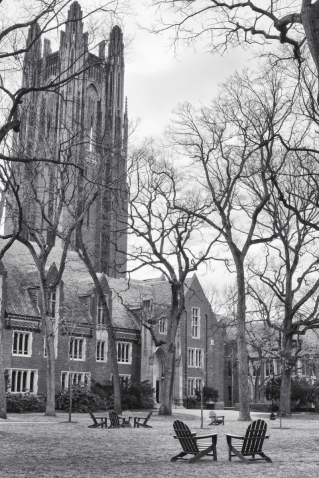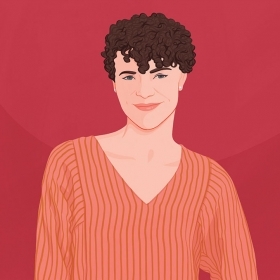Photo by Grace Ramsdell ’22
In early March, a string of unseasonably warm days brought students and entire classes out onto the Academic Quad, many of them relaxing in the Adirondack chairs that were added to the space in 2018. A week later, as COVID-19 cases emerged around the country and colleges began closing to help slow the spread of the virus, the chairs and the campus were largely empty.
President Paula Johnson announced that spring break would begin early, on March 16, and remote instruction would begin on March 30 and continue for the rest of the semester. Students who had no other option were able to remain in campus housing—those who are nationals of countries to which they were unable to return, as well as students for whom returning home would be impossible or unsafe.
“One of the most inspiring lessons I take from Wellesley’s long history is that the bonds forged here are strong, and transcend time and geography. We are in this together and we will do this together, because we are Wellesley,” President Johnson wrote in a letter to the community.
For more information about the early days of online learning, see “From Zero to Zoom.”








We ask that those who engage in Wellesley magazine's online community act with honesty, integrity, and respect. (Remember the honor code, alums?) We reserve the right to remove comments by impersonators or comments that are not civil and relevant to the subject at hand. By posting here, you are permitting Wellesley magazine to edit and republish your comment in all media. Please remember that all posts are public.